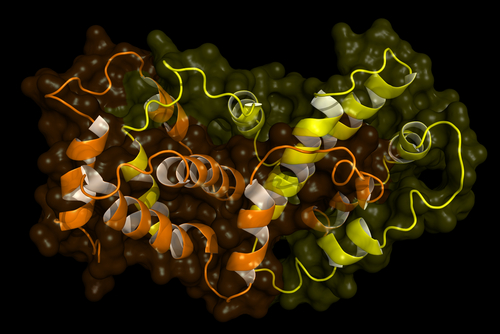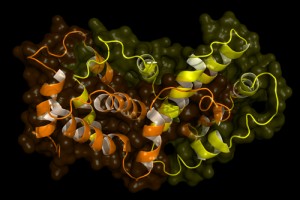Serum Proteins May Reveal Impending Multiple Sclerosis Symptom Onset
Written by |

 According to new research published in European Journal of Neurology, susceptibility to multiple sclerosis may be predicted by looking at individuals’ protein profiles, otherwise known as proteomes. A team led by principal investigator Dr. S. Jacobson at the National Institutes of Health and Dr. M. T. Wallin at the VA Multiple Sclerosis Center of Excellence determined that changes in proteins within certain pathways precede the onset of symptoms.
According to new research published in European Journal of Neurology, susceptibility to multiple sclerosis may be predicted by looking at individuals’ protein profiles, otherwise known as proteomes. A team led by principal investigator Dr. S. Jacobson at the National Institutes of Health and Dr. M. T. Wallin at the VA Multiple Sclerosis Center of Excellence determined that changes in proteins within certain pathways precede the onset of symptoms.
As described in “Serum Proteomic Analysis of a Pre-Symptomatic Multiple Sclerosis Cohort,” a total of 100 multiple sclerosis patients, all of whom were US military veterans, and 100 healthy controls were studied by the research team. Samples of serum taken before and after symptom onset, which were obtained from the Defense Serum Repository, were analyzed for protein content.
First, the proteins were isolated from serum by depleting the serum of the abundant proteins albumin and immunoglobulin G. Then, the team separated out tryptic peptides of lectin-captured glycosulated serum proteins.
Using a technology known as tandem mass spectrometry analysis, which can identify sample proteins by finding their masses and then comparing the masses against a protein database, in conjunction with the Ingenuity Pathway Analysis Program, the team noticed specific differences between multiple sclerosis patient proteins and healthy individual proteins.
[adrotate group=”4″]
“Pre-symptomatic proteins from the multiple sclerosis group were differentially regulated compared with both control groups indicating that proteomic changes are detected prior to symptom onset,” wrote the team. These proteins were involved in lipid transport and played roles in the complement and coagulation pathways.
Evidently, the team showed that proteins, in addition to previously investigated environmental and genetic factors, can reflect impending multiple sclerosis symptom onset. The average time of serum collection before onset was 6 years, while the average time of collection after onset was 1.1 years. It would be worthwhile to continue to collect data concerning protein changes before and after multiple sclerosis onset for more patients at various times before and after diagnosis and appearance of symptoms.


